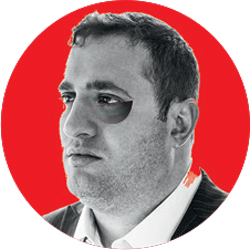From partnership disputes to allegations of fraud, this year has seen yet another pile of messy lawsuits in almost every corner of New York City real estate.
Some of the industry’s top players in residential, commercial, tech and beyond dished out and received court complaints, and The Real Deal looked at five of the most explosive lawsuits filed in 2016. Among the recurring themes were disagreements over joint-venture ownership and equity stakes — specifically in the cases of the coveted Ring portfolio and the planned supertall at 111 West 57th Street.
“It boils down to money,” said Joshua Stein, an independent real estate lawyer based in New York. “A project may need more money in ways people didn’t anticipate, and people aren’t always happy to write those checks.”
Stein said close to 95 percent of the time, parties in real estate lawsuits — particularly partnerships gone sour — reach a settlement before making it to trial.
“When bad things happen, people get documents out of a drawer with a magnifying glass and they find that the documents don’t always mean what they expected them to,” he told TRD.
Joint ventures, though, weren’t the only cause of dissension. In addition to the suits spotlighted below, there were also internal company conflicts between Douglas Elliman retail broker Joseph Aquino and his former boss Faith Hope Consolo, and Miki Naftali and his two former acquisition executives — both over payment issues.
“When you have complex matters with multiple parties in which there is perceived to be controversy, is it any surprise that there may be differences?” said attorney David Paget, who is representing the Hudson River Park Trust in three lawsuits over Pier 55. Read on for a look at some of the most noteworthy disputes of 2016.

Joseph Beninati and N. Richard Kalikow
The Sutton Place foreclosure fight
One of the year’s most controversial New York City new development projects is 3 Sutton Place, the proposed supertall that doesn’t quite tower above the mountain of court documents tied to it. The legal joust kicked off after developer Joseph Beninati’s Bauhouse Group defaulted on a $147 million mezzanine loan in January, causing the lender, Gamma Real Estate, to initiate foreclosure proceedings.
In February, Bauhouse filed a lawsuit in New York State Supreme Court to block the foreclosure, which the judge denied. The Bauhouse-controlled entity that owns the site then filed for Chapter 11 bankruptcy protection to prevent N. Richard Kalikow’s Gamma from foreclosing on it.
The developer accused Gamma of devising a 15-month “calculated scheme” to take control of his $1 billion Midtown East condo project by using insider information obtained by Beninati’s lawyer. The lawyer for Beninati on the 68-story Norman Foster-designed tower happened to be Kalikow’s cousin, Richard R. Kalikow of Herrick Feinstein.
In July, Beninati filed another suit against Gamma, this time seeking $100 million in federal bankruptcy court. According to the complaint, the Kalikows “enjoyed what is tantamount to an insider trading relationship” and “worked in concert to lull Beninati into a sense of trust and faith.” The goal was to “reap the greedy reward of all its profit,” Beninati claimed. At the time, Richard Kalikow told TRD, “Everything that we did was proper.”
Beninati, who Crain’s reported invested only $5 million in the project, is continuing to fight foreclosure. In September, a bankruptcy court signed an order allowing for the site to be sold. JLL, which has a separate lawsuit against Bauhouse for an allegedly unpaid financing commission, and Meridian Capital Group will market the property.
A bankruptcy filing unearthed by TRD in September showed the extent of the developer’s financial troubles. A Connecticut entity tied to Beninati and his wife filed for Chapter 11 bankruptcy protection, citing liabilities of as much as $1 million. Meanwhile, defaulted interest payments on Gamma’s mezzanine loan have grown to $185 million, according to the New York Post.
Also in September, Gamma filed a lawsuit of its own against real estate investors Philip, Michael and Seth Pilevsky for allegedly helping Beninati file for bankruptcy in order to acquire a stake in the project. The Pilevskys could not be reached for comment.

Wendy Maitland and Joseph Sitt
The Town Residential brokerage drama
In the cutthroat residential world, there hasn’t been a more headline-grabbing lawsuit story this year than the one entangling Town Residential. One of the firm’s top brokers targeted co-founder Joseph Sitt in a heated legal drama that stretched from May to September.
Seeking to invalidate the non-compete clause in her contract, Town broker Wendy Maitland filed a lawsuit in May against the firm, accusing Sitt of starving Town of funds and thereby causing it to default on rent payments, as well as suffer other losses.
Maitland, who had joined Town in 2010, was named president of sales in 2014. She then began receiving a share of Town’s net realized profit. At the time the lawsuit was filed, Town brokers Judi Lederer and Jason Karadus had also recently jumped ship — to Douglas Elliman and Brown Harris Stevens, respectively.
In a separate negotiation unrelated to the suit, co-founder and CEO Andrew Heiberger bought Sitt out of his interest in the company in July. Heiberger then took up the cause of keeping Maitland’s non-compete in force. In documents tied to the case, Heiberger claimed that Maitland violated her employee agreement multiple times. He alleged that she solicited Town brokers to exit the firm with her, stole confidential information and conspired to join direct competitor Terra Holdings.
Amid the suit, Maitland’s landlord for her East Village apartment moved to evict her after she allegedly failed to meet a deadline to close on the purchase of the approximately $2 million pad.
Town and Maitland reached a settlement in September. Maitland was permitted to continue working at Brown Harris Stevens, where she had joined as a resale and new development broker. The complete terms of the settlement were not disclosed.
The 111 West 57th equity feud

Michael Stern
The partnership behind the proposed tallest residential building in the Western Hemisphere proved troubled after AmBase Corp. accused JDS Development Group and Property Markets Group of an “unlawful scheme to dilute” its equity stake in the project, which is planned to be 1,428 feet tall.
The Florida-based holding company, led by Chairman, President and CEO Richard Bianco, sued its partners for $105 million back in April, according to court records. The defendants filed a motion to dismiss in July, and the suit is ongoing.
AmBase’s complaint alleges that Michael Stern’s JDS and Kevin Maloney’s PMG artificially drove up “development expenses” and then issued “unnecessary capital calls to cover the purported costs.” JDS and PMG funded their portion of the capital calls by “illicitly obtaining financing on favorable terms from undisclosed parties,” the lawsuit states. The developers limited their own risk while imposing “substantial financial burdens,” according to the complaint.
Court records also provided a glimpse into the $1.45 billion project’s complex ownership structure as of 2013. The documents showed that JDS and PMG owned 96 percent of the sponsorship equity, which in turn owned 41 percent of the project. AmBase had invested $56 million in 2013, to take the remaining 59 percent.
The tower had risen 11 of its total planned 82 stories as of late September.

Michael J. Turner and William-Skelley
The iFunding investment saga
The budding real estate crowdfunding industry had a rare encounter with controversy this year when New York-based iFunding was hit with two lawsuits: one from a bank alleging fraud, and the other from an investor seeking to dissolve the company.
CapStack Partners, a boutique investment bank, accused iFunding of failing to raise an agreed-upon sum through its platform for two 2015 financing deals and then repeatedly lying about its performance amid several delays in the process. The suit was settled in March.
Separately, investor Michael J. Turner — who had taken a 20 percent stake in the company after investing $100,000 in 2012 — claimed he was squeezed out of decision-making. Turner sought a court order forcing iFunding to buy his interest, along with the company’s dissolution. In August, the parties reached a settlement, in which iFunding agreed to pay him $150,000.
iFunding, which raises money for real estate projects through an online platform, was one of the first crowdfunding startups on the scene when it was founded by William Skelley in 2012. Former New York Gov. David Paterson stepped down from the startup’s board in October 2015 after a falling-out.

Joseph Chetrit and Gary Barnett
The Ring portfolio ownership battle
Two of the industry’s developer heavyweights have continued to lock horns — first to buy the coveted 14-building F. M. Ring portfolio in 2013, and then in court this May. It was Chetrit vs. Extell as the Chetrit Group’s Joseph Chetrit filed a $400 million lawsuit against both Extell Development and its CEO, Gary Barnett.
Chetrit claimed Extell’s “tortious interference” prevented his firm and Joseph Tabak’s Princeton Holdings from taking control of the Ring family’s office properties. The much-sought-after portfolio had been jointly owned by brothers Frank and Michael Ring, who had inherited the properties on the death of their father, Leo.
Prior to entering into a joint venture with Chetrit, Tabak was slated to close on the $112.5 million purchase of a controlling interest in Michael Ring’s half of the portfolio, according to the lawsuit.
Chetrit alleged that Barnett’s move to acquire Tabak’s contract on Michael Ring’s stake in the buildings “knowingly caused Princeton to breach its obligations to [Chetrit] and interfered with the prospective” joint venture.
Yet the conflict goes deeper than that one lawsuit. Three months after Tabak entered into a contract in 2011 to buy Michael Ring’s 50 percent stake, Ring sought to terminate the contract, and Tabak sued him in an effort to force the sale.
Two years later, the deal had yet to close, and so Tabak flipped the contract to Extell for $65 million. Tabak returned Chetrit’s $12.5 million deposit and paid him a share of the profits.
But in October 2013, an unhappy Chetrit sued Tabak. In an email cited in court documents, Chetrit wrote: “I am getting raped by you. I want to meet ASAP today.”
Eastdil Secured’s Doug Harmon attempted to mediate the conflict between Chetrit and Tabak. Court documents show an email chain with the subject line “Ring a ding ding boys.”
Extell ultimately acquired Frank Ring’s stake in the portfolio in 2014 as well, and has since sold or ground-leased many of the buildings. Chetrit’s lawsuit against Extell is ongoing. In August, Chetrit submitted an argument against Barnett’s motion to dismiss the case.
